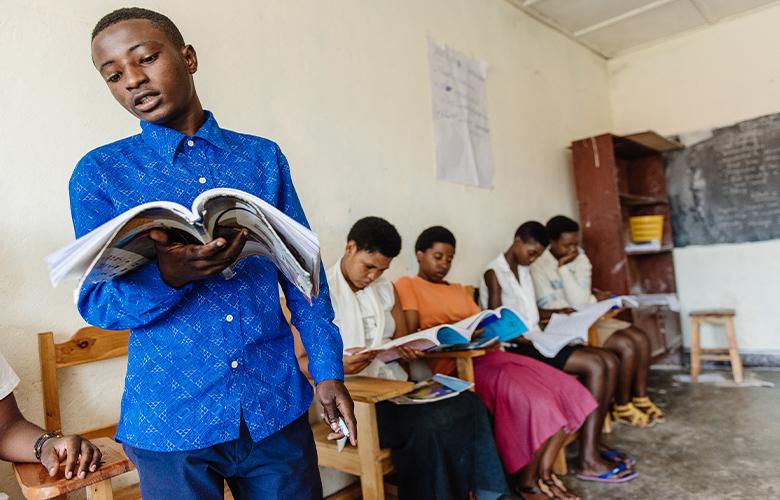
The COVID-19 pandemic created significant economic hardships around the world. In Rwanda, the economic disruptions left micro, small- and medium-sized enterprises (SMEs) struggling to survive. Measures implemented to contain the spread of the virus and keep people safe also negatively affected their livelihoods, particularly for those who relied upon daily activities to earn money. Most small and medium enterprises experienced significant losses due to the haulting of business operations, supply chains, and household incomes and expenditures.
To better understand the project’s contribution to income-generating activies, EDC’s Huguka Dukore Akazi Kanoze (HDAK) conducted an entreprenuership study. The study delved into the impacts of COVID-19 on economic opportunities among young entrepreneurs and highlighted how participating in HDAK activities helped young people manage and mitigate the effects of the pandemic’s disruption.
Study results showed the positive impacts that HDAK made on the livelihoods of young entrepreneurs. For example, youth spoke about the value of the skills and “changed mindsets” they gained from the program, especially the vital role of soft skills, work readiness skills, adaptibility, and saving. Youth also noted that these skills proved crucial for their ability to cope with the challenges introduced by the pandemic. Among the key tools and resources youth adopted to maintain their businesses during this time, they highlighted the following two:
- SILC Savings Clubs: Even pre-COVID-19, acquiring the money to start and grow a buisness was challenging for youth. However, this challenge was greatly increased during the pandemic. With few options available to them, young people relied heavily on SILC Savings Clubs led by EDC partner Catholic Relief Services (CRS). This loan system proved invaluable to their livelihoods as they were able to access and borrow money when they needed.
- HDAK’s work readiness curricula: Young people shared that the skills they gained from the work readiness training—goal-setting, patience, self-confidence, and the ability to identify new markets—enabled them to weather the pandemic. Some specifically mentioned that the HDAK trainings gave them the skills to adjust to the situation and deal during the pandemic.
Owning and operating businesses are important in empowering youth and supporting their economic independence. In Rwanda, EDC is committed to achieving this by implementing entrepreneurship programs that develop and promote work skills. We believe that having resilience, adaptability, and flexible thinking are keys to youth being successful.
Marla Chaneta supports project staff in the United States and abroad. She assists in the implementation of youth employability and entrepreneurship programs focused on helping youth gain technical and soft skills to make them more employable. |

Comments
Add new comment